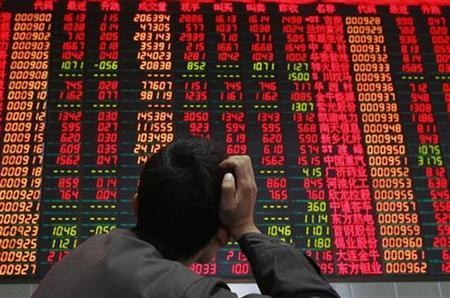China stocks crashed close to 9 percent on Monday, shaking world stocks and commodity prices, and pushing U.S. stocks with the S&P 500 and NASDAQ composite indexes into the correction field.
The Dow Jones industrial average reduced its losses after plummeting over 1,000 points, or nearly 7 percent, at Wall Street's open, but still closed the trading day with 3.6 percent loss. Meanwhile, the Standard & Poor's 500 index ended down 3.9 percent, which was 11 percent less than its May record high.
In only five sessions, the standard S&P index has accrued 9.95 percent of losses.
The CBOE Volatility Index, or simply VIX, a U.S. equity volatility measure, surged past the 50 mark for the first time since 2009, fell back near 30 and then climbed up to 40.
A few U.S. investors went shopping during the dip, leading to accelerated selling at the latter part of the day, said Randy Frederick, managing director of trading and derivatives for Austin-based Charles Schwab.
A huge portion of the world's markets went down, including Hong Kong's Hang Seng index, Nikkei futures, European stocks, U.S. stocks, and other Asian shares.
U.S. trade investors sprinted for the exits during the first 30 minutes of trading on Monday, following concerns about a global growth downturn led by China.
"Anybody with a pulse was nervous when the market opened," said Michael James, managing director of equity trading at Los Angeles-based Wedbush Securities.
China's massive downfall
The crash was China stocks' worst performance since 2007's global financial crisis and eliminated what was left of 2015's gains, which stood at over 50 percent in June.
A lot of traders had counted on China to enact support measures, such as a rate cut in interest, over the weekend following the 11-percent droop in China's primary stock markets last week.
Major currencies, such as the U.S. dollar and Australian dollar, also fell hard compared to other currencies earlier in the day.
The all-world stock index MSCI was down 3.8 percent at the end of the U.S. session.


